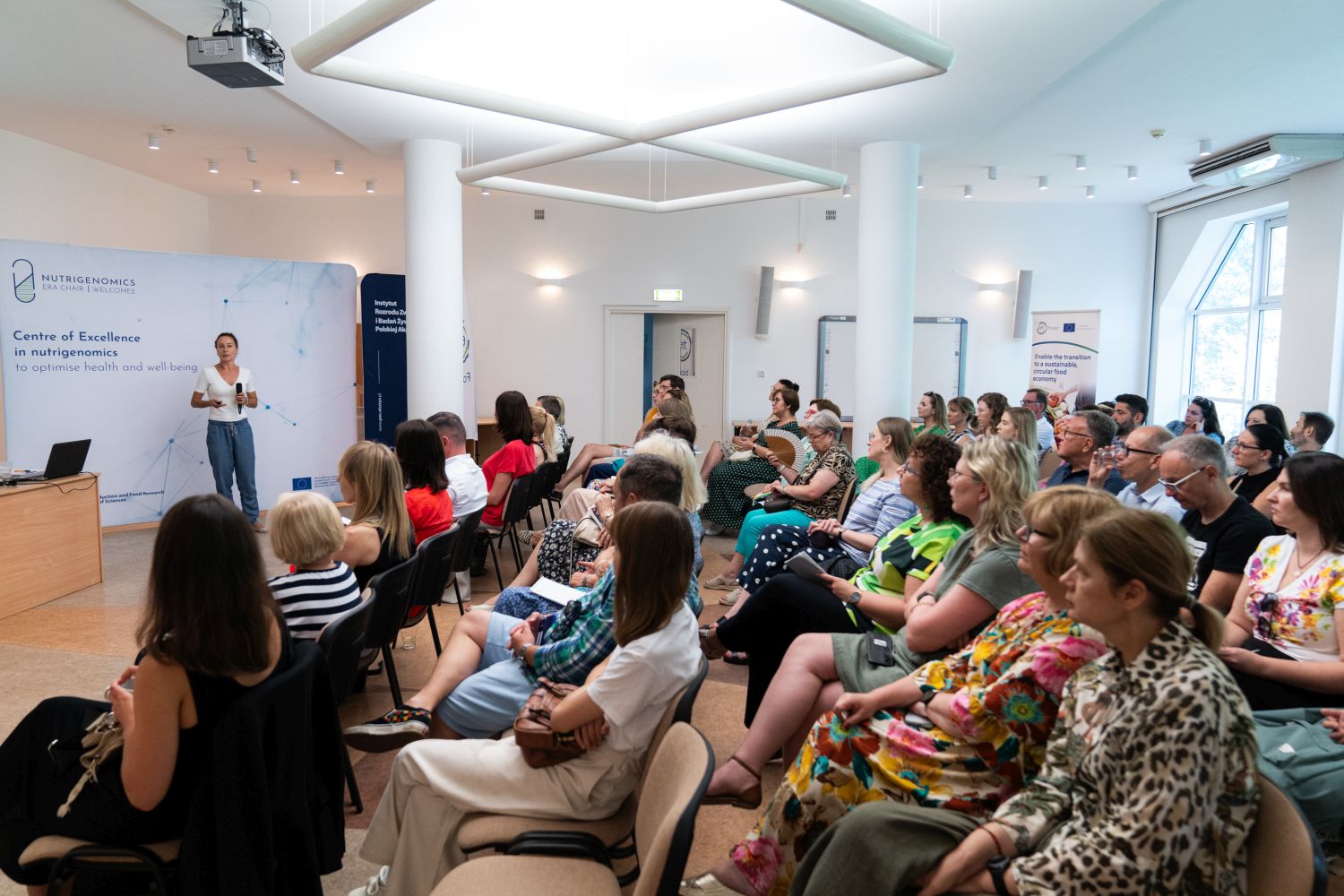Vitamin D regulates the work of hundreds of genes and dozens of physiological functions in the human body, including those responsible for the efficiency of the immune system. The latest research has shown that each of us reacts differently to vitamin D (has a different level of responsiveness), which translates into, among others: to a faster or slower pace of the aging process of our body.
An expert in this field – Prof. Carsten Carlberg, world-famous biochemist and head of the Nutrigenomics Laboratory at the Institute of Animal Reproduction and Food Research of the Polish Academy of Sciences in Olsztyn, talks about the current scientific knowledge about vitamin D.
The best-known effect of vitamin D is maintaining the appropriate level of calcium in the body to maintain proper bone structure. But that’s not its only function, right?
Prof. Carsten Carlberg: Yes. Vitamin D regulates not only calcium homeostasis, but also our immunity. It is important for “training” our immune system so that it works effectively against microbial infections, but does not overreact against possible autoimmune reactions. Its long-term deficiency may lead not only to bone diseases (rickets in children and osteomalacia in adults), but also causes malfunction of the immune system, leading, among others to increased susceptibility to infectious diseases or autoimmune diseases.
How does vitamin D regulate our immunity?
Vitamin D regulates the work of hundreds of genes and dozens of physiological functions in the human body, including those responsible for the activity of the immune system. The vitamin D receptor (VDR) plays a significant role here, which is responsible for transmitting the appropriate signal and then modulating the expression of hundreds of target genes. Analysis of this process at the molecular level in vivo, i.e. in humans, is the main challenge for future studies of vitamin D target genes.
What have the results of your research so far shown?
The research is still ongoing, but based on the results so far, we have proposed dividing the population into three groups, according to the level of the body’s response to vitamin D: high responders, medium responders and low responders. A high level of responsiveness means that the body is able to make a maximum use of the effects of vitamin D (it has a high molecular response to vitamin D) and that in this group of people the need for supplementation is lower than in people from the low responsive group. This division was and still is the starting point for my subsequent research.
What kind of research?
Among other, I looked at the relationship between this responsiveness division and the processes occurring at the molecular level in cells sensitive to changes in vitamin D – in the context of the aging process.
Aging is a natural and inevitable process of accumulation of molecular and cellular damage. This leads to defective functions of cells, tissues and organs that weaken the entire human body, also in terms of immunocompetence, which is the ability of the human body to respond appropriately to exposure to an antigen. As overall immunocompetence declines during aging, the relative number of immune cells also declines.
However, our research has shown that there is a difference between people, i.e. some people have a higher percentage of immune cells than average, and some have a lower percentage. Therefore, it can be assumed that in the first group, the rate of aging is slower and the incidence of disease is lower, while in the second group, accelerated aging and a higher rate of disease should be observed. Going further, on this basis it can also be assumed that linking the level of the body’s individual response to vitamin D with its immunocompetence plays a significant role in the aging process.
Moreover, I am conducting research as part of a project financed by the National Science Center entitled “Investigating the mechanisms of epigenetic memory at the example of the responsiveness of human immune cells to vitamin D”.
The research entails intervention studies with selected residents of the city of Olsztyn. We hope this study will help us answer the question of whether the things we do or experience throughout our lives can be stored in the epigenome of our cells. In other words, does the epigenome (i.e. the set of chemical modifications of DNA that regulate the functions of the genome) function as a memory of our lifestyle, using the example of vitamin D.
You have been working at the Institute of Animal Reproduction and Food Research of the Polish Academy of Sciences in Olsztyn for over two years now. You are the founder of the Nutrigenomics Laboratory that you manage. What is nutrigenomics?
Nutrition is an essential element of life because it consists of molecules that meet our body’s needs for macro- and microelements. Moreover, some of these molecules directly communicate with the human genome (genetic material) and epigenome. And it is this complex relationship that is the essence of nutrigenomics.
Does this mean that diet affects the human body more than we think?
Definitely. Daily communication between diet and the (epi)genome modulates gene expression in metabolic organs such as adipose tissue, skeletal muscle, liver and pancreas, as well as in the brain and immune system. The cellular and molecular biology behind these gene regulatory processes maintains the homeostasis of the human body that prevents the development of non-communicable diseases such as obesity, diabetes, cardiovascular disease and cancer.
I conducted research that showed that the (epi)genome cannot keep up with adapting to the modern diet. Over the last 50 years, human life, including its diet, has changed so radically that the general population has not yet had time to adapt and cannot cope with problems related to lifestyle diseases, such as overweight and obesity, diabetes and high blood pressure.
For example, most of the time humans ate products with a low salt content, therefore our body has developed an efficient system for absorbing this salt from our diet, which was necessary in ancient times, but today creates many problems. Today’s diet is high in salt, and excess salt causes high blood pressure, which kills 10 million people worldwide each year.
Can this be prevented?
Of course. Our fate is in our hands – epigenetics largely depends on what (good or bad) we do to our body. The occurrence of these diseases mentioned earlier is influenced by many environmental factors, including our diet, so if we take care of our health, we can minimize the risk.
Finally, let’s talk about the latest recommendations regarding vitamin D supplementation. What are the experts’ guidelines?
The main source of vitamin D for the body is skin synthesis in contact with UV radiation. That’s why it’s worth exposing our skin to the sun – of course, remembering about proper protection against sunburn. Changing the style and mode of our lives, including: Spending a lot of time indoors translates into numerous vitamin D deficiencies, especially in the autumn and winter. A diet can help us, but even a balanced and varied one is not enough. Therefore, everyone should supplement vitamin D in the fall and winter, and people who do not spend enough time outdoors, even in summer, should supplement vitamin D throughout the year.






